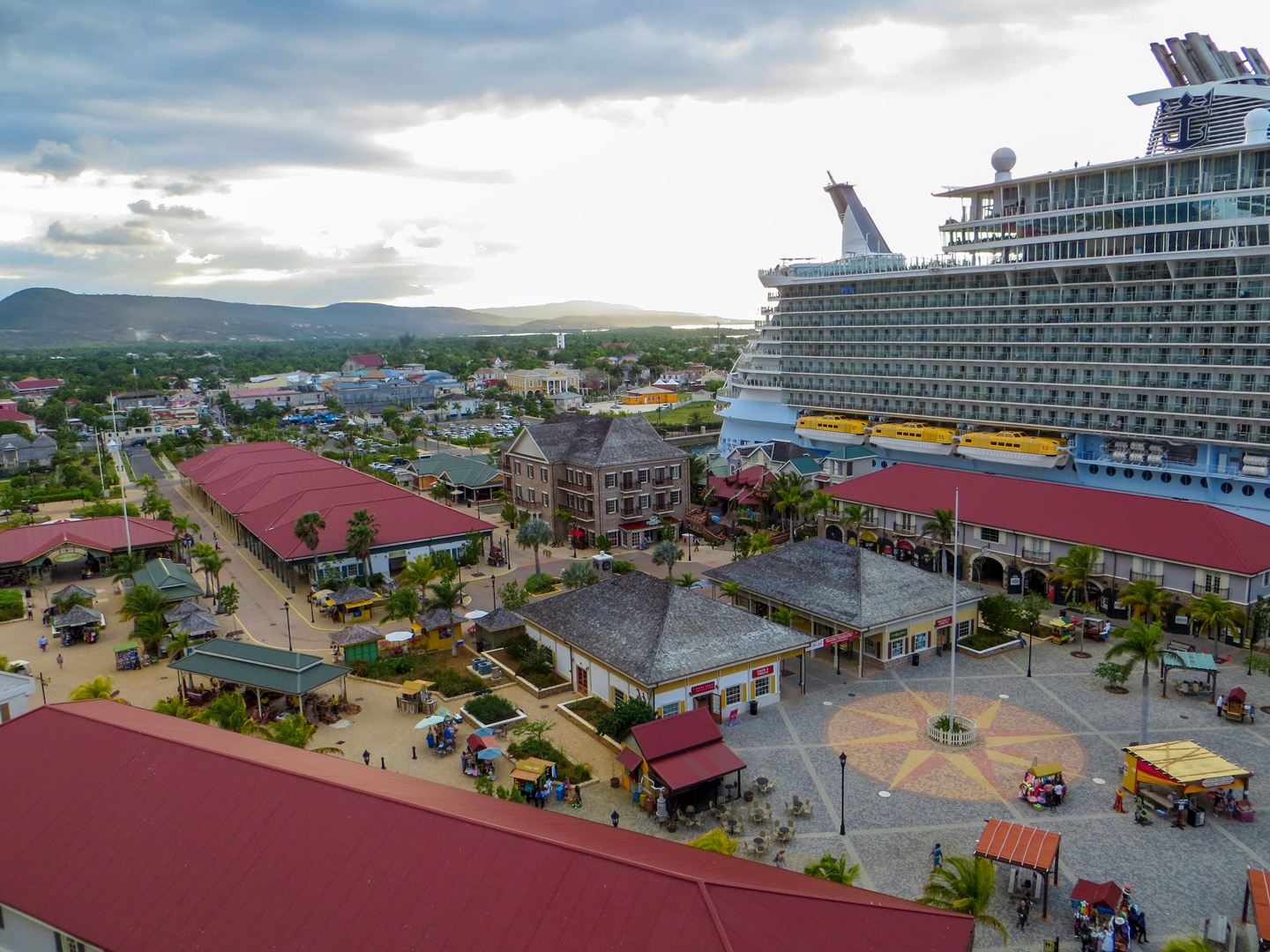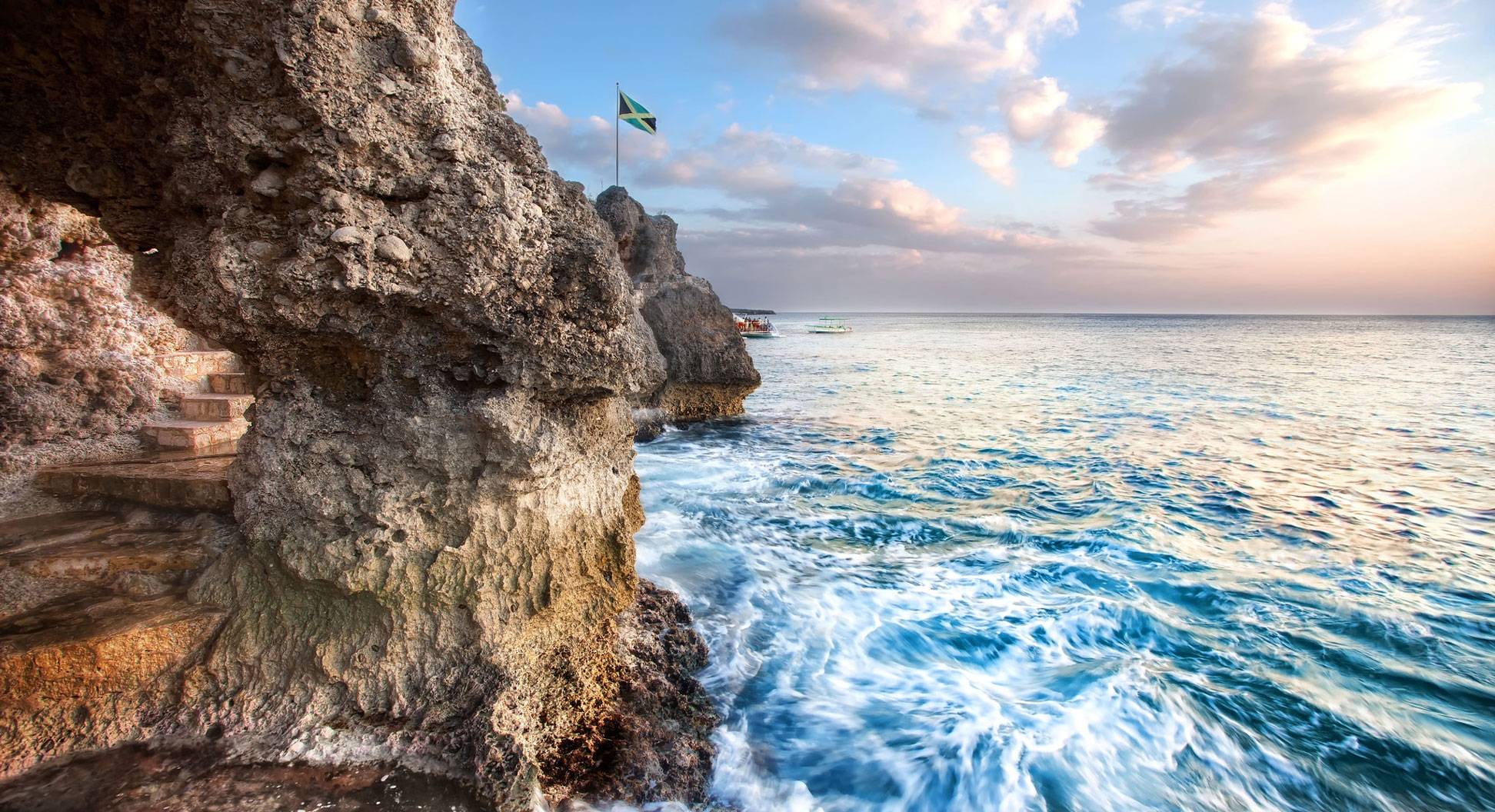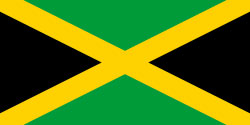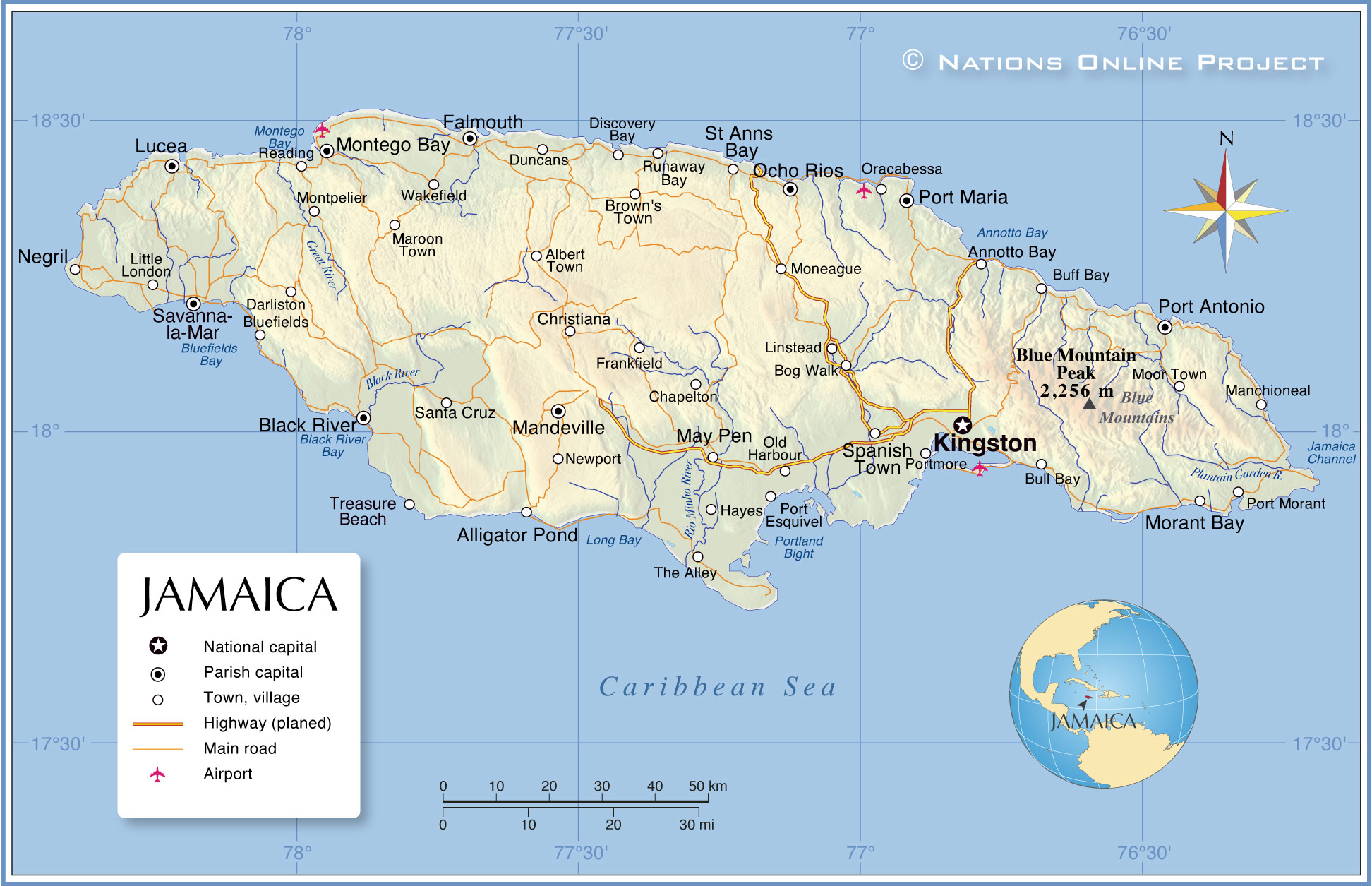About Jamaica
The map shows Jamaica, an island country in the Caribbean Sea.
With an
area of 10,991 km², it is the third-largest island of the Greater Antilles after Cuba and Hispaniola. Compared, Jamaica is somewhat larger than
Cyprus or slightly smaller than half the size of the US state of
New Jersey.
The island is known for its tropical beaches, blue mountains, and rich culture, a mix of African, indigenous Taino, and British influences.
Jamaica has
2.8 million inhabitants (in 2022), making it the fourth most-populous island nation in the Caribbean. Its capital and largest city is
Kingston. The official language is English, the local dialect,
Patois, is widely spoken. The most important religion is Christianity; most Jamaicans are Protestants. Jamaica is famous for its music, particularly reggae and ska, which originated in the country.
More about Jamaica
 The Port of Falmouth in Jamaica. The town is known for its Jamaican Georgian architectural style and its cruise ship port opened in 2011.
The Port of Falmouth in Jamaica. The town is known for its Jamaican Georgian architectural style and its cruise ship port opened in 2011.
Photo: Sunnya343
Jamaica is an island country located in the Caribbean Sea. It is the third-largest island of the Greater Antilles and the fourth-largest island country in the Caribbean by population.
Jamaica is known for its palm-fringed beaches, Rastas and reggae, the blue mountains and its rich culture, a mix of African, indigenous Taino, and British influences.
Jamaica is especially famous for its music, particularly ska and reggae, which originated in the country in the late 1960s.
The country has a diverse and vibrant culture heavily influenced by its colonial history.
The island was originally inhabited by indigenous Taino people; it was colonized by the Spanish in the early 16th century. In 1655, the British seized Jamaica from the Spanish.
African slaves were brought to Jamaica to work on the sugar plantations. By the 18th century, Jamaica had become one of the most valuable British colonies.
Today, Jamaica has a
population of about 2.9 million people; more than 75% are of African descent, but there is also a significant minority of people of European and East Indian descent.
Jamaica is a major tourist destination known for its tropical climate, beautiful beaches and turquoise waters. The island is home to many natural attractions, such as the Blue Mountains, which offer hiking and bird-watching opportunities, as well as some of the best coffee in the world. Jamaica also has a rich history, with many historic sites, including the former capital of Spanish Town, which is now a UNESCO World Heritage Site.
Jamaica is also famous for its music, particularly reggae and ska, which originated in the country. Bob Marley, a Jamaican singer-songwriter and musician, is considered one of the most important figures in the history of reggae music and is still widely respected and celebrated today.
Jamaica is considered a developing country and has faced some economic challenges in recent years. Its economy is largely based on tourism and agriculture. The island is a major producer of sugar, bananas, and coffee. Jamaica is also known for its bauxite mining, the ore from which aluminum is made. It is an important source of foreign exchange for the country, but bauxite mining is considered one of the causes of deforestation on the island.
The map shows the location of the following Jamaican cities and towns:
The largest cities are:
Kingston (capital; pop.: 938,000), Portmore (pop.: 167,000), Spanish Town (pop.: 162,000), Montego Bay (pop.: 100,000)
Albert Town, Alligator Pond, Annotto Bay, Black River, Bluefields, Bog Walk, Brown's Town, Buff Bay, Bull Bay,
Chapelton, Christiana, Discovery Bay, Duncans, Falmouth, Frankfield, Half Way Tree, Linstead, Little London, Lucea, Manchioneal, Mandeville, Maroon Town, May Pen, Moneague, Montpelier, Moor Town, Morant Bay,
Negril, Newport, Ocho Rios, Old Harbour, Oracabessa, Port Antonio, Port Esquivel, Port Maria, Port Morant, Reading, Runaway Bay, Saint Anns Bay, Santa Cruz, Savanna-la-Mar, and The Alley.
Advertisements:





